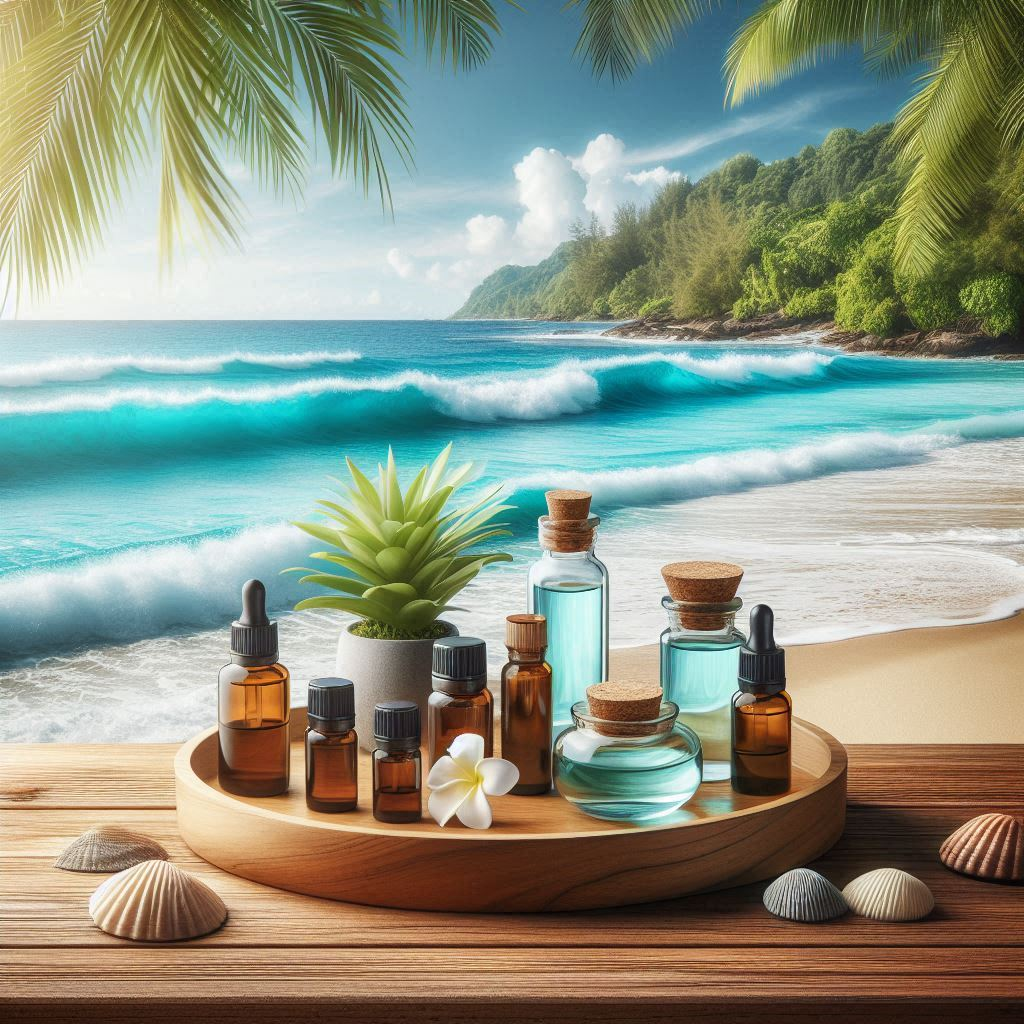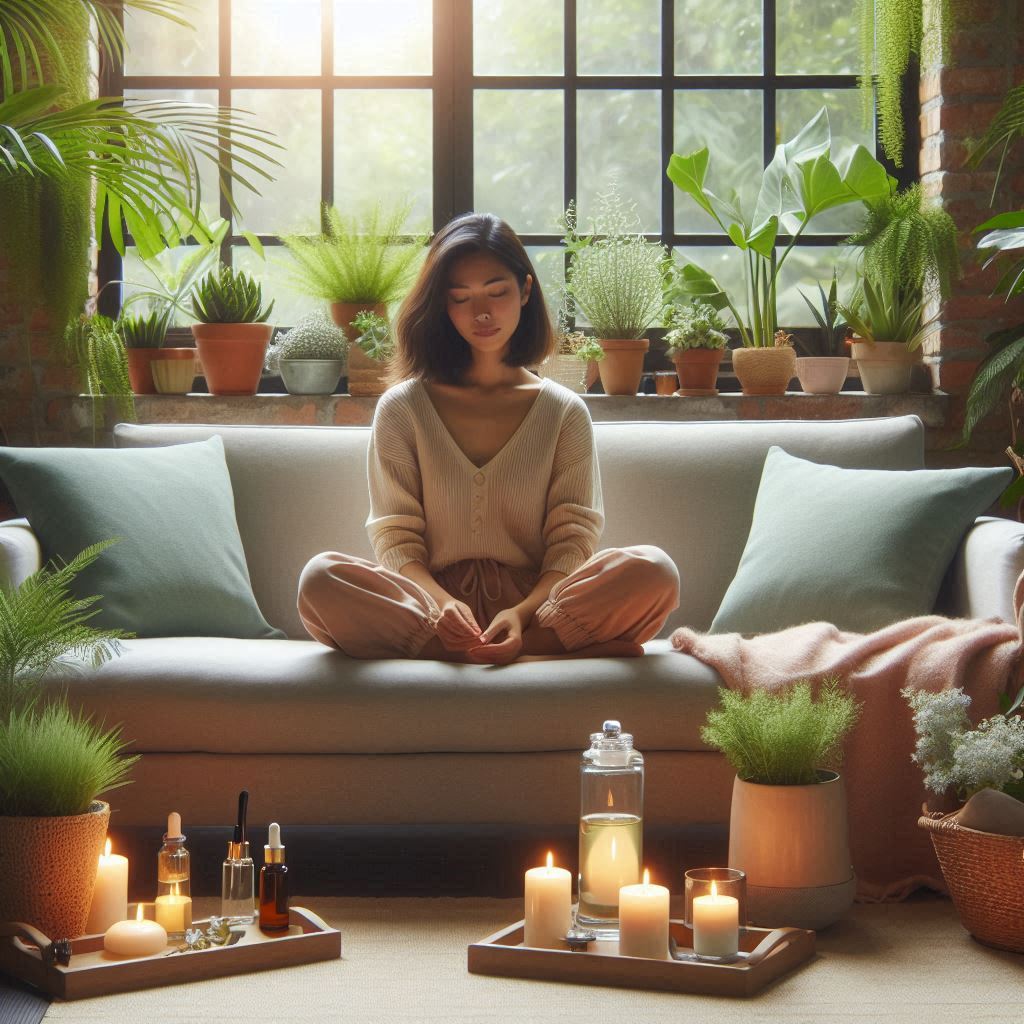Essential oils have become a popular natural remedy for those looking for gentle ways to ease stress and promote a sense of calm. Many people are turning to these oils as a daily addition to their wellness routines. In this article, I check out how essential oils can be used to relieve stress, while discussing practical tips and insights about integrating them into your everyday life.

Exploring Essential Oils for Stress Relief
Essential oils are often sought after due to their high-quality, naturally derived ingredients. They offer a range of scents and benefits that many find helpful in reducing feelings of overwhelm. By incorporating these essential oils into a routine, some users report feeling more at ease during stressful times.
These oils are prized by those interested in natural wellness practices. Often recommended by aromatherapy enthusiasts, essential oils can be used in diffusers, applied topically, or even inhaled directly. The versatility of these oils makes them a handy addition to a stress-relief regimen.
It is common for newcomers to feel uncertain about where to start when it comes to essential oil use. The variety of blends and individual oils available can appear overwhelming at first glance. However, learning some basics about how and why these oils work can create a more comfortable pathway to a calmer state of mind.
Whether your goal is to enjoy a relaxing evening or smooth out a hectic day, essential oils provide a natural alternative to pharmaceutical methods. Their emphasis on quality and purity has created a loyal following among those who prefer natural remedies for everyday challenges.
Introducing Essential Oils
The world of essential oils is rich with possibilities. Several oils like lavender, chamomile, and bergamot are often highlighted for their stress-relieving properties.
Lavender oil, is widely known for its soothing aroma. It has been used traditionally to help promote relaxation and sleep. Chamomile oil is another favorite, as its warm, gentle scent is believed to calm the nervous system after a long and taxing day.
Bergamot oil provides a slightly citrusy note and a refreshing sensory experience. When diffused or diluted for topical use, it may help to switch up the mood toward a more serene outlook. Adding these scents into your routine can create a ritual that signals your body and mind to wind down.
Essential oils are typically used in various ways: in diffusers for ambient scent, diluted in carrier oils for a gentle massage, or added to your bath for an aromatic soak. Their method of application can be adjusted to suit different preferences, making them adaptable to individual stress management strategies.
Getting Started with Essential Oils
Before bringing essential oils into your life as a stress management tool, it is important to understand a few key points. This initial step can help you choose which oils might best address your needs.
I recommend starting with a small set of commonly used oils instead of purchasing a wide selection all at once. This approach allows you to experiment and stumble upon which scents truly resonate with you. It also helps in understanding how each oil affects your mood and overall well-being.
Once you decide on an oil, consider the method of use. Diffusers offer one of the simplest ways to benefit from these oils by filling a room with a gentle aroma. Using a few drops in a warm diffuser can transform your environment, creating a calming atmosphere suited for relaxation.
If you plan to apply essential oils to your skin, it is essential to dilute them with a suitable carrier oil. This practice not only ensures safety but also helps the oil blend more naturally with your skin. Familiarizing yourself with each oil’s specific usage instructions can prevent any mishaps along the way.
Consider purchasing a starter kit if you are new to essential oils. Many kits come with a range of oils, a diffuser, and even a guide that explains proper use. These kits can simplify the process by offering a curated selection of oils that work well together, especially for managing stress.
A Quick Guide to Achieving Calm
Integrating essential oils into your routine need not be complex. By following a few simple steps, you can start benefiting from their calming properties right away.
- Choose a Calm-Inducing Oil: Many beginners start with oils like lavender or chamomile to help ease their minds.
- Decide on a Method of Use: Whether diffusing the oil in your living space or creating a personal roller blend, choose what feels most natural to you.
- Learn the Correct Dosage: Essential oils are potent, so a little goes a long way. Start small and adjust as needed.
- Create a Relaxation Ritual: Using the oil at the same time daily can reinforce a pattern that signals your body to unwind.
- Observe and Adjust: Notice how each oil affects your mood and energy. Your body’s response is your best guide in making future decisions.
This methodical approach makes it easier to incorporate these oils into your daily routine. As you gain confidence in using them, you might also try creating blends specifically designed for moments of stress.
Storage and Shelf Life
Proper storage is key to maintaining the quality of essential oils. These products should be kept in dark, cool places away from direct sunlight and heat. Good storage practices ensure that the oils remain effective for longer periods, allowing you to enjoy their benefits without compromise.
By bearing in mind these considerations, you can use essential oils with greater confidence and achieve a more balanced approach to stress relief.
Advanced Techniques for Stepped-Up Relaxation
Once you have a basic understanding of how to use essential oils, you might want to explore more advanced techniques to step up your stress-relief practices. These methods can level up your experience and allow you to design a personalized wellness routine that fits your lifestyle perfectly.
Layering Scents for Synergy: Experiment with combining different oils. Blending lavender with frankincense or bergamot with chamomile can create a unique aroma that speaks to your specific relaxation needs. Many avid users find that certain combinations work better during stressful periods. Experimenting with ratios and even testing small batches can further fine-tune the blend that works best for you.
Using Oils in Meditation and Yoga: Incorporate essential oils into your meditation or yoga sessions by diffusing them during your practice. Their gentle aromas help set a mindful tone, creating an atmosphere that naturally invites relaxation. This integration can assist in clearing your mind and preparing you for a deeper state of focus.
Create a Custom Roller Blend: With a few carrier oils and your favorite essential oils, you can make a portable roller blend. This blend can be applied to pulse points during moments of stress. Experimenting with different ratios allows you to find a balance that feels just right, making it easier to carry a sense of calm wherever you go.
Step Up Your Environment: Strategically placing diffusers around your living or work space can transform the atmosphere. A subtle, consistent aroma can serve as a gentle reminder to pause, breathe, and recenter yourself throughout the day. This method is particularly useful for those who spend long hours in demanding settings.
These advanced techniques enable you to tailor your experience with essential oils. With time, you may stumble upon a blend or method that uniquely helps you relax even during the busiest periods.
The Basics: Integrating Essential Oils into Your Routine
The foundations of using essential oils are simple to grasp. A step-by-step approach to integrating these oils into your daily routine ensures that you harness their benefits safely and effectively.
For many, starting with a morning or bedtime ritual can make a significant difference. Whether it is adding a few drops to your diffuser or creating a quick roller blend, a small daily practice can have lasting effects on your stress levels. Consistency often leads to a better cumulative effect, as your mind begins to associate the scent with calm and relief.
- Daily Diffusing: A morning or evening diffuser session can set the mood for your day or help you unwind at night.
- Aromatherapy Inhalers: These compact inhalers offer a quick, convenient way to benefit from the oils while on the go.
- Personal Roller Blends: Carry a custom blend with you to apply on the neck or wrists during moments of stress.
These everyday practices not only support your stress relief efforts but also offer a subtle way to remind yourself to focus on self-care. Over time, these small rituals pave the way for a deeper, more relaxed state of being.
Frequently Asked Questions
Below are some common questions that newcomers often have regarding the use of essential oils for stress relief.
Question: How do I determine which essential oil is best for managing my stress?
Answer: Start by exploring popular oils like lavender and chamomile. Observe how they affect your mood and consider using a diffuser to fill your space with their aroma. If you’re unsure, a starter kit can help you experiment with different options.
Question: Is it safe to apply essential oils directly on the skin?
Answer: Direct application without dilution can sometimes lead to irritation. Always dilute essential oils with a carrier oil before using them on your skin and perform a patch test to check for any reactions.
Question: Can I mix different oils together?
Answer: Yes, many users create custom blends by combining oils. However, it is a good idea to research recommended ratios or consult guidance to ensure the blend is both safe and effective.
Question: How often should I use essential oils to notice stress relief benefits?
Answer: The answer can vary from person to person. Some people find daily use beneficial, while others might only use them during particularly stressful times. Regular practice often leads to a more pronounced sense of calm.
Conclusion
Essential oils offer a natural approach to managing stress. Their range of high-quality, aromatic products can give a boost to your atmosphere and provide gentle relief to help balance your mind. While they are not a cure-all, these oils provide supportive benefits that may complement other wellness practices.
Embracing these oils as a part of your daily routine might feel like a small step, but it is a positive move toward a calmer lifestyle. Experiment with different scents, try various methods, and identify what makes you feel most at ease. Whether it is through diffusing oils at home or carrying a personal blend with you, essential oils can be a valuable partner on your wellness adventure.
Remember that using natural products like these is a personal exploration. Your experience may evolve over time, and by continually refining your routine, you can bring to life more of the inherent benefits that each oil has to offer. Enjoy the process of crafting your own relaxation rituals and allow essential oils to softly guide you toward a more peaceful day-to-day experience.
Here is a shopping link:
https://referral.doterra.me/4740777
“Here’s a little transparency: Our website contains affiliate links. This means if you click and make a purchase, we may receive a small commission. Don’t worry, there’s no extra cost to you. It’s a simple way you can support our mission to bring you quality content.”

